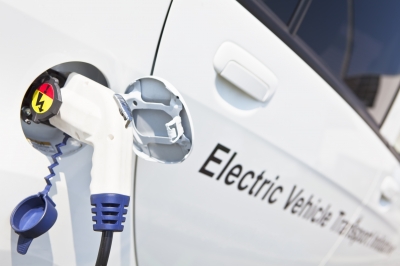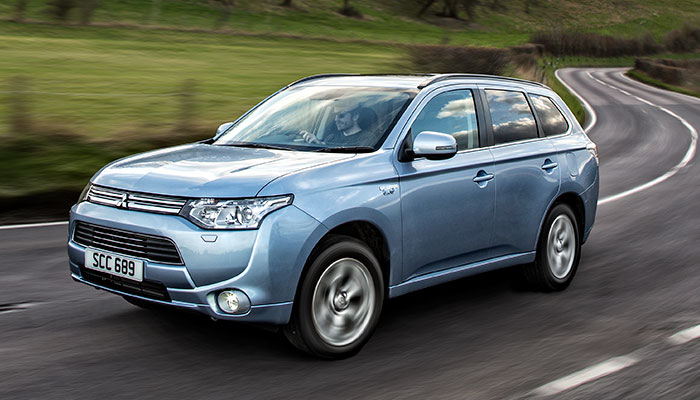Sales of plug-in hybrid cars have risen by 984% from March 2014 to March 2015, and sales of electric vehicles in 2015 are predicted to reach 30,000. It seems that suddenly they are popular, everywhere and silently taking over the company car market.

Image courtesy of Serge Bertasius Photography at FreeDigitalPhotos.net
When you are an owner managed business, it may not make sense to have a company car as you could well end up paying more in personal tax than you save in Corporation Tax. Why create tax for yourself?
However, we've reconsidered our standard advice about company cars after taking a good look at the new petrol electric hybrids. And when we say "reconsidered our advice" we mean "use Mitsubishi Outlander PHEV's as company cars" kind of reconsidered. *NB other PHEV vehicles are available, we also like the look of the BMW i8.
What made us change our mind?
Well, the reduced Benefit in Kind tax for the new electric hybrids sealed the deal for us, along with the other government incentives:
- Road tax exemption
- No London congestion zone charging
- Plug-in grant up to £5000
- First Year Allowances (FYA) on Ultra Low Emission Vehicles until 2018 (ULEV are defined as vehicles with emmissions of less than 75 grams of CO2 per kilometer)
Benefit in Kind tax for low emission vehicles
BiK tax is calculated on the cost price of the car, plus VAT delivery and options over £100 (this is usually called the "P11D Value" on leasing documents after the form that the employer fills out listing employee benefits received in the year. The percentage of tax is based on the carbon dioxide (CO2) emissions: the aim being to persuade end users to choose low emission cars.
The employee's Benefit In Kind is taxed at their personal tax rate (marginal rate, so 20%, 40% etc). So, you take the P11D value and multiply it by the BIK percentage (based on the car's fuel and CO2 emissions) and the employee's tax rate (eg basic at 20%). This will give you the amount of tax that you are paying for the car.
Hybrid company cars are taxed at a reduced Benefit In Kind rate because of their lower emissions, at the time of writing (August 2015) BIK rate for a car in the 0-50g/km bracket is just 5% and although this is set to rise over the coming 5 years it will still be considerably less than higher emission brackets. (Over the next three tax years, it will increase from 5% to 7% and then 9%.)
Let's take a look at the choice of our accountant here at TMT and 10,000 other motorists in the UK: the Mitsubishi Outlander PHEV ("PHEV" stands for Petrol Hybrid Electric Vehicle).

Image courtesy of http://www.mitsubishi-cars.co.uk/
A quick comparision: the diesel Outlander with emissions of 138g/km would be taxed at 25%:
List Price £26,784 x 25% x 20% ( £1,339) or 40% (£2,678)
But the Outlander PHEV has emissions of only 44g/km (in marketing speak that is not just low, but "ultra-low") which means that it falls within the lowest 0-50g/km bracket and is only taxed at 5%.
List Price £33,304 x 5% x 20% (£333) or 40% (£666)
Big difference, a more expensive car for less money out of your pocket.
Lets not forget the company benefits also as there are First Year Allowances (FYA) available on Ultra Low Emission Vehicles where the cost of the vehicle can be claimed against Corporation Tax, so in our example a £6,660 reduction in the Corporation Tax bill.
When is a fuel not a fuel?
When it's electricity and you're using it to power an electric car, that's when.
A director or employee who is provided with a company car and receives free fuel will be taxed on this as a benefit in kind. Fuel benefit is also based on CO2 emissions and fuel type. BUT the government do not consider electricity to be a fuel for the purposes: "Car Fuel Benefit Charge - as electricity is not a fuel, there is currently no fuel benefit charge." from this handy govt guide: FACTSHEET - Tax implications of ultra low emission vehicles. This is great news if your company pays for your electric 'fuel'. A company can have an electric charging station at their offices and there is no benefit in kind tax for any employee that uses it to charge their car. So, potentially driving to work and back home again could be on pure electricity and there is no tax charge!
Which raises the question: should an employee that reimburses their employer for private mileage (to avoid Benefit in Kind on fuel) have to reimburse the employer for the electric miles (EV miles) to avoid Benefit in Kind tax on fuel?
Well the answer from HMRC is a resounding 'No' as electricity is not a fuel. Even if you charge your car at your work and then use that charge for personal mileage, as electric is not regarded as a fuel there is no BiK charge on that usage.
Further information
If you want to know if an electric or hybrid car is eligible for the Plug-in Car Grant, you can check here and if you're interested you should move quickly, as the government's £5,000 subsidy on new electric cars runs out after the first 50,000 have been sold.


